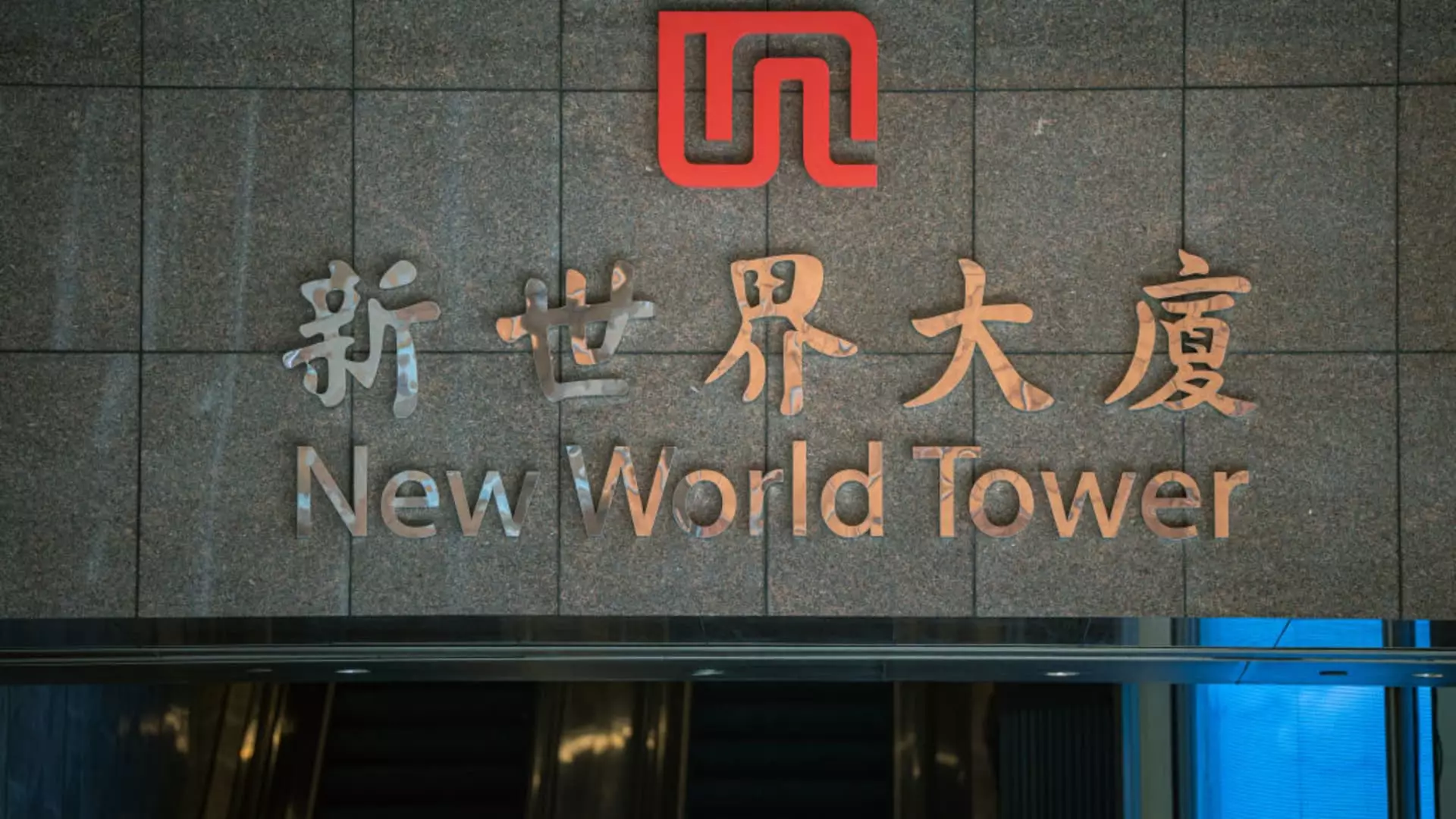The recent resignation of Adrian Cheng, a prominent figure within Hong Kong’s New World Development, has triggered a remarkable shift in the company’s landscape. Following the announcement, shares experienced a significant surge, soaring 23% upon market reopening on Friday. This unexpected reaction highlights not only the investor community’s unpredictability but also the broader implications of leadership transition within family-run enterprises. Cheng’s departure — motivated by his desire to engage more in public service and personal commitments — illustrates the intersection of personal choices and corporate dynamics in a rapidly evolving economic environment.
The appointment of Eric Ma Siu-Cheung, previously the Chief Operating Officer, as the new CEO marks a significant departure from the traditional practice of utilizing family members to helm the firm. This progression raises profound questions about corporate governance and the adaptability of longstanding family businesses. Alicia Garcia-Herrero, chief economist for Asia Pacific at Natixis, emphasized that effective management is crucial, especially in challenging markets. As the company grapples with substantial projected losses —between HK$19 billion and HK$20 billion— the ability to attract skilled leadership becomes imperative. The decision to bring in a non-family member reflects not only a practical response to a dire financial landscape but also a potential shift in corporate culture.
New World Development finds itself amidst the broader malaise affecting both Hong Kong and mainland China’s real estate sectors. The company’s significant debt levels, paired with declining sales and market impairment, have compounded its difficulties, reflecting a widespread struggle in a sector long viewed as a cornerstone of the economic fabric. Recovery could be on the horizon, however, as recent stimulus measures announced by China’s central bank signal a renewed focus on stabilizing the real estate market. The recent rally in share prices across Hong Kong and Chinese equities demonstrates how interconnected corporate recovery strategies are with governmental initiatives.
New World Development’s ability to navigate through these turbulent waters will determine not only its survival but also its potential for revitalization. The infusion of fresh leadership, coupled with a renewed emphasis on robust corporate governance, could very well position the company for long-term success. Garcia-Herrero’s observations point to a significant moment for Hong Kong tycoons and family-led businesses, imploring them to recognize that resilience in the face of adversity hinges upon skilled management rather than mere familial ties. As authorities pledge to address real estate decline through fiscal and monetary policies, the path ahead for New World may be fraught with challenges, yet laden with unprecedented opportunities for transformation.
New World Development’s recent leadership changes are indicative of a larger shift within the corporate governance landscape in Hong Kong. As the lines between family-run enterprises and professional management continue to blur, the realization that exceptional governance is crucial for survival resonates louder than ever. The coming months will reveal how effectively the company can leverage its new leadership and external economic stimuli to foster growth and resilience in an evolving market.

